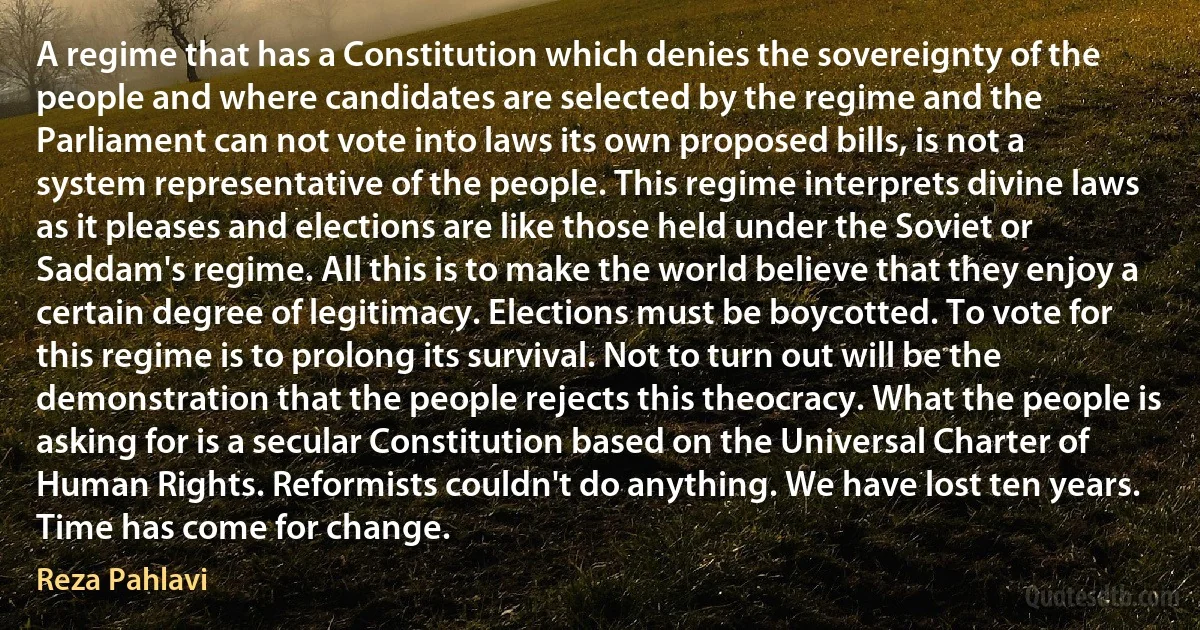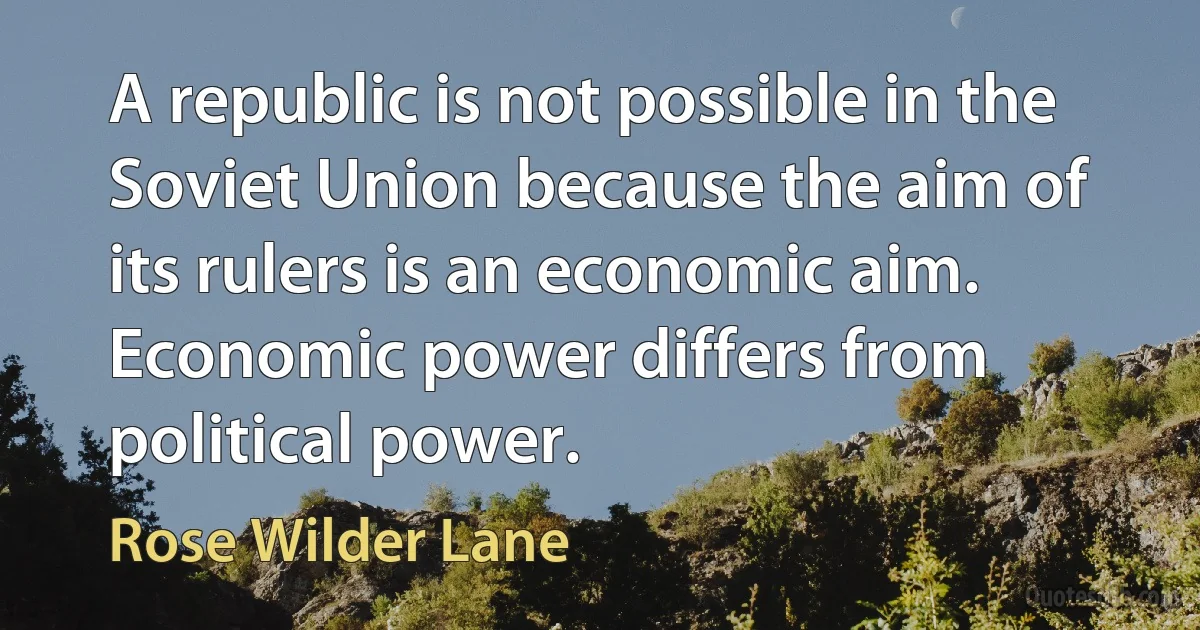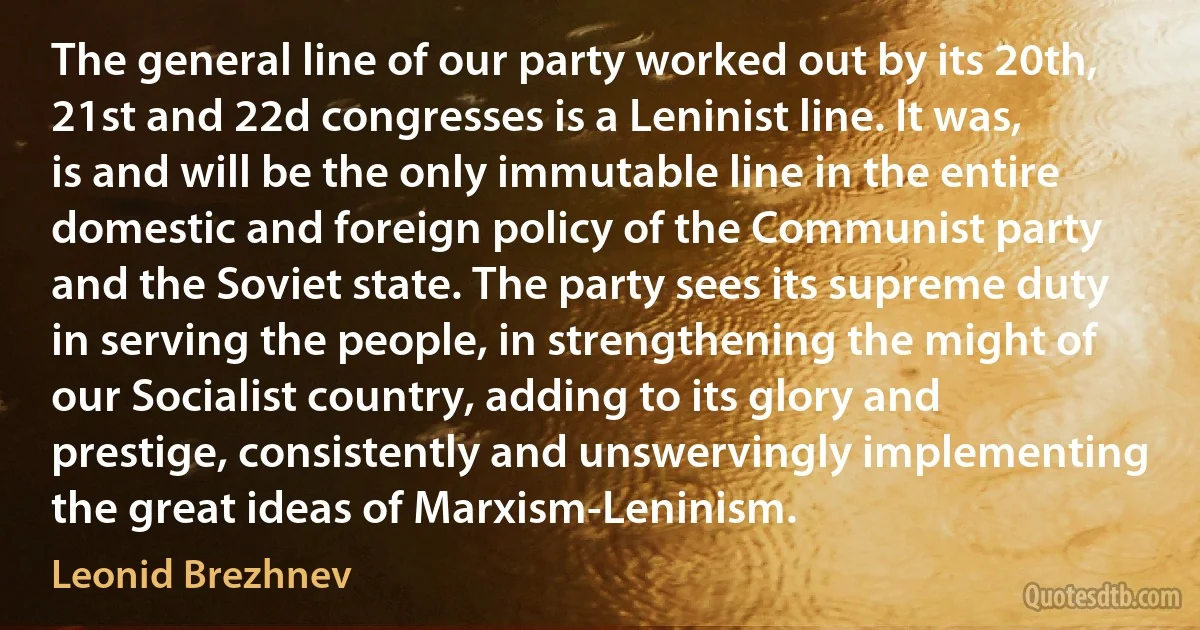Soviet Quotes - page 26
When the news of the Russian Bolshevik Revolution of November 1917 burst upon the world, American workers learned for the first time of a man named Vladimir Lenin-through this great event in human history, the beginning of socialism. We also learned some new words, which became part of the language in no time, "Bolshevik" and "Soviet," among them. Even those of us who were left-Socialists and IWWs knew practically nothing of the Russian Socialist movement, except that we had great sympathy with its long, agonizing struggle to overthrow the tsar's cruel and bloody regime. Overnight, "Bolshevik" became a household word, even to those who did not know it merely meant "majority," and referred to a political division in the Russian Social-Democratic Labor Party. "I am a Bolshevik from the crown of my head to the tip of my toes!" said Debs. "Damned Bolsheviks!" employers shouted at militant workers and union organizers. All strikers were "Bolsheviks," of course.

Eugene V. Debs
Without a doubt, President Yeltsin - with all the human weaknesses no one is free of - was one of the truly great men of our age. When all was uncertain in the disintegrating Soviet Union, he was the one to set a new course by abolishing the Soviet Union and recognising the independence of the three Baltic States. His repudiation of Communism was unequivocal, and he clearly directed the new Russia towards ever closer cooperation with the rest of Europe. He was a great person in the history of Russia and of Europe.

Boris Yeltsin
When we remember Boris Yeltsin, we remember a person who played an important role in bringing down the Soviet dictatorship and who guided Russia in its first steps towards democracy. Without the contributions Yeltsin made at that time, it is likely that developments could have taken a very different turn. As President, Boris Yeltsin also helped open up Russia for important market economy reforms. In a country where private ownership was previously forbidden or actively opposed, this was an effort that was neither easy nor unproblematic, but was utterly necessary.

Boris Yeltsin
When the fascist armies had actually invaded Soviet territory and military operations began, Moscow issued the order that the German fire was not to be returned. Why? It was because Stalin, despite evident facts, thought that the war had not yet started, that this was only a provocative action on the part of several undisciplined sections of the German Army, and that reaction might serve as a reason for the Germans to begin the war.

Nikita Khrushchev
In the world we live in - and the system we've created for ourselves, in terms of it's a big industry - you cannot lose money. So the point is that you're forced to make a particular kind of movie. And I used to say this all the time, with people, you know, back when Russia was the Union of Soviet Socialist Republics, and they'd say: "Oh, but aren't you so glad that you're in America?" And I'd say: "Well, I know a lot of Russian filmmakers and they have a lot more freedom than I have. All they have to do is be careful about criticizing the government. Otherwise, they can do anything they want".

George Lucas
No modern tyrant ruled as long as Kim Il-sung. For almost half a century he was the only ruler his country knew. His invasion of South Korea in 1950 brought him to the brink of disaster, but he was rescued by his allies and removed internal opposition through bloody purges. He turned his country into one of the most industrialized and regimented on the planet. The personality cult surrounding him reached unparalleled heights. North Korea's economy collapsed with the end of the Soviet Union, but Kim did not live to see the mass starvation that followed.

Kim Il-sung
Kim Il Sung not only presided over the birth of a new nation in an old land, he was inextricably bound to the fate of North Korea. Perhaps to a greater degree than any other modern political leader, he may be seen as the full embodiment of the state. Indeed, Kim was more integral to state and society in North Korea than Stalin in the Soviet Union, or Mao in China.

Kim Il-sung
I came out of the Soviet Union no longer a communist, because I believed in personal freedom. Like all Americans, I took for granted the individual liberty to which I had been born. It seemed as necessary and as inevitable as the air I breathed; it seemed the natural element in which human beings lived.

Rose Wilder Lane
The "Declare COVID-19 Vaccine a Global Common Good Now” campaign launched by Yunus on Sunday has already gained the support of 19 Nobel Prize laureates, including Archbishop Desmond Tutu, Malala Yousafzai, Iranian political activist and lawyer Shirin Ebadi, Poland's first democratically elected president Lech Walesa, British molecular biologist Sir Richard John Roberts, and former Soviet Union president Mikhail Gorbachev. Yunus said he was expecting a huge response from global leaders to ensure that, in the case of a COVID-19 vaccine, there would be consensus for free universal access. He warned that this would not happen as long as the vaccine remained a commercial product owned by companies... As of Friday (3 July 2020), 112 former presidents, prime ministers, business leaders, artists and social activists joined his mission. Everyone can support the initiative through the website www.vaccinecommongood.org.

Muhammad Yunus
I'm completely aware and utterly aware that Russia [the Soviet Union] lost 25 million people for winning the war, and I know that Russian troops whether ones who liberated concentration camps, Auschwitz and others, and I'm aware that there's an incredible sacrifice on the side of Russia and I do believe that it's ignored because of course of political interests. It's very much the question what other facts, maybe 600 or so thousand American soldiers lost their lives in the Second World War, 25-26 million Russian those effects, that cannot be ignored, and today it's not that really important what really happend, it's more than question who owns the narrative, who owns the narrative, and occupying the narrative has created some sort of lopsided ideologies in lopsided information, that we see every day.

Werner Herzog
To stop the war, besides being a futile gesture, would leave the crisis unresolved. It would postpone the necessity of a solution. Therefore, in a spirit of fatalism (which my opponents are welcome to call a spirit of sadism) I say: Let the war go on. It is the shortest and therefore the best way to replace the capitalist system by a democratic system, and which will at the same time rescind those partial and tyrannical solutions of the crisis represented by the Soviet Union no less than by Germany and Italy.

Herbert Read
The "national interest" is not a geographical term, except for fairly prosaic matters like trade and environmental regulation. A smaller nation might appropriately feel that its national interest begins and ends at its borders, so that its foreign policy is almost always in a defensive mode. A larger nation has more extensive interests. And large nations, whose identity is ideological, like the Soviet Union of yesteryear and the United States of today, inevitably have ideological interests in addition to more material concerns. Barring extraordinary events, the United States will always feel obliged to defend, if possible, a democratic nation under attack from nondemocratic forces, external or internal. That is why it was in our national interest to come to the defense of France and Britain in World War II. That is why we feel it necessary to defend Israel today, when its survival is threatened. No complicated geopolitical calculations of national interest are necessary.

Irving Kristol
It is highly important to grasp this fact. It enables us to understand that revolutions and revolutionary wars are inevitable in class society and that without them, it is impossible to accomplish any leap in social development and to overthrow the reactionary ruling classes and therefore impossible for the people to win political power. Communists must expose the deceitful propaganda of the reactionaries, such as the assertion that social revolution is unnecessary and impossible. They must firmly uphold the Marxist-Leninist theory of social revolution and enable the people to understand that social revolution is not only entirely necessary but also entirely practicable, and that the whole history of mankind and the triumph of the Soviet Union have confirmed this scientific truth.

Mao Zedong
I welcome Nixon's winning the election. Why? There is a deceptive side of him as well, but there is less of it. Do you believe it? He is accustomed to use hard tactics, but sometimes also soft ones. If he wishes to come to Beijing, please tell him he should do it secretly, not openly-just get on a plane and come. It doesn't matter whether negotiations succeed or fail. Why should we maintain such a deadlock? However, there is no secret in the United States. If the president goes abroad, it is impossible to keep it secret. In coming to China, he is sure to declare his aim is to draw in China in order to make things difficult for the Soviet Union. Hence he does not dare to act this way at present. To punish the Soviet Union is disadvantageous to the U.S., and to punish China is equally disadvantageous.

Mao Zedong
Putin's understanding of the world is maddeningly narrow, reduced to a gloomy tunnel vision, locked into a false narrative of betrayal. He once declared the fall of the Soviet Union 'the greatest geopolitical catastrophe of the twentieth century'.
What?
Worse than the First and Second World Wars? Worse than the Holocaust? The Soviet Union was, in reality, a dark totalitarian dictatorship under Stalin that slowly morphed into a gloomy senility.

John Sweeney (journalist)
Nixon feared for our alliances if America abdicated in Indochina; he was concerned about the impact on Soviet restraint if the United States simply abandoned what four administrations had affirmed, and he believed that a demonstration of American weakness in Asia would destroy the opening to China based in part on America's role in thwarting Soviet moves toward hegemony in Asia. But as he entered office, he found that by the end of the Johnson administration, the goal of victory had been abandoned and a commitment had been made to end the bombing of North Vietnam and to seek a negotiated compromise solution. These objectives had been affirmed by both candidates in the presidential campaign. No significant American political or intellectual leader opposed them. When a negotiated solution proved unattainable, Nixon proceeded unilaterally to implement his concept of an honorable withdrawal.

Henry Kissinger
Even a professed "revisionist" such as Ebeling cannot free himself entirely from orthodox-leftist historical myths when he appears to liken and classify as on a par the "evils" of Stalin and Hitler and the socioeconomic character of Soviet Russia and Nazi Germany. From 1929 to 1939, in peace time, Stalin and the Bolsheviks killed about 20 million Soviet citizens, for no predictable reason. Hitler and the National Socialists ruined the businesses and careers of hundreds of thousands of German citizens, but the number of people killed by them before the outbreak of the war was only a few hundred, most of them fellow Nazis and all of them for a predictable reason.

Hans-Hermann Hoppe
In summer 1945, the historical act of the reunification of Carpathian Ukraine "with its ancient motherland, Ukraine" - as The Pravda newspaper put it - was announced.
Therefore, modern Ukraine is entirely the product of the Soviet era. We know and remember well that it was shaped - for a significant part - on the lands of historical Russia. To make sure of that, it is enough to look at the boundaries of the lands reunited with the Russian state in the 17th century and the territory of the Ukrainian SSR when it left the Soviet Union.

Vladimir Putin
Oh, they had an explanation ready for every occasion, from the extension of capital punishment to the twelve-year-old to the abolition of the Soviet workers' right to strike and to the one-party-election-system; they called it ‘revolutionary dialectics' and reminded one of those conjurers on the stage who can produce an egg from every pocket of their frockcoats and even out of the harmless onlooker's nose. They explained everything so well that, during a committee meeting, old Heinrich Mann, at one time a great ‘sympathiser,' shouted to Dahlem, leader of the German Communists: ‘If you go on asking me to realise that this table here is a fishpond, then I am afraid my dialectical capacities are at an end.'

Arthur Koestler



